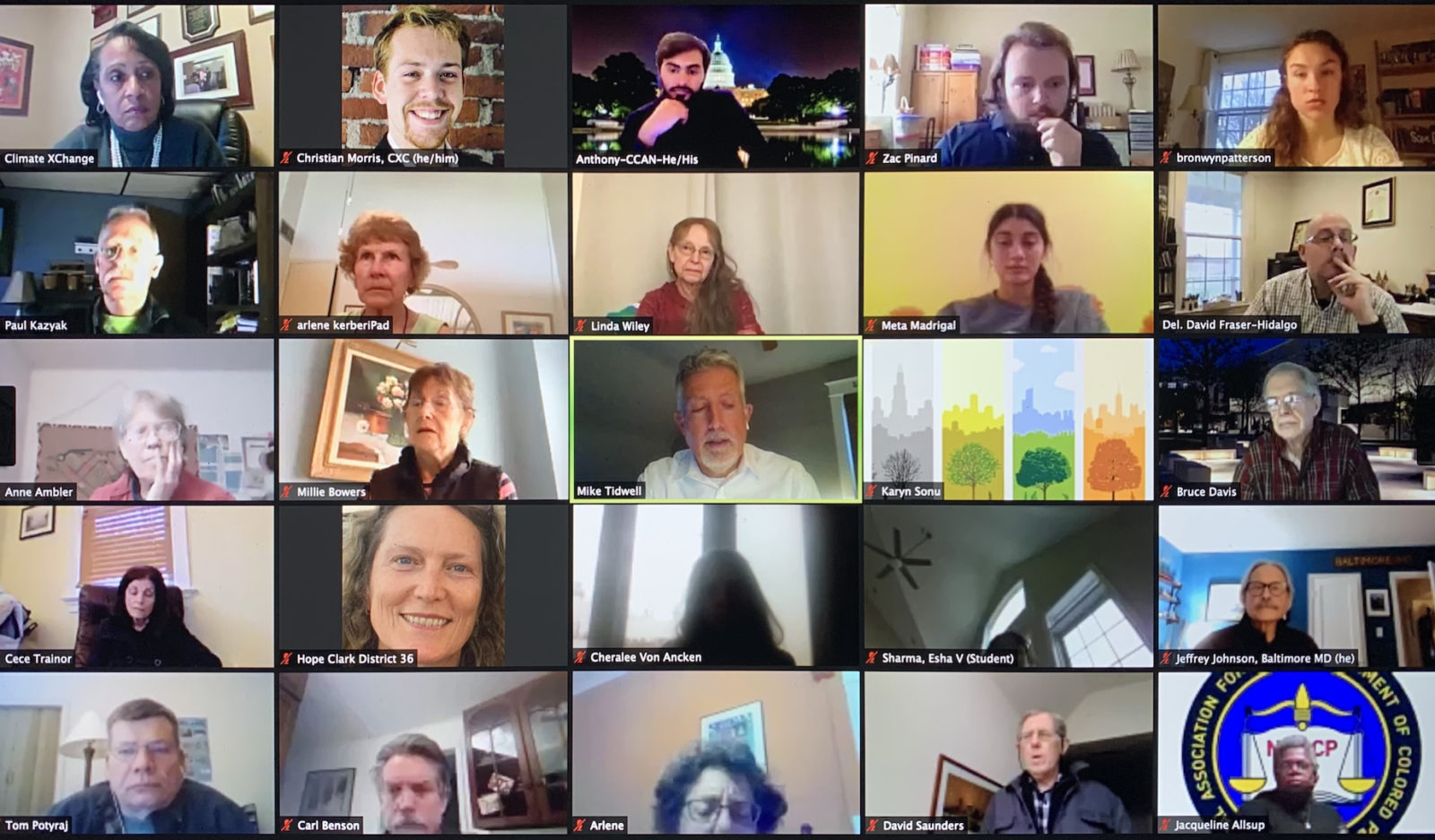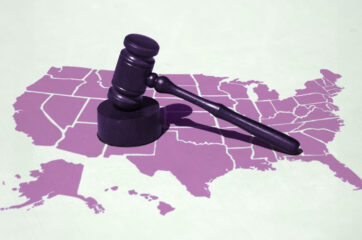The Climate Crisis and Education Act (CCEA), introduced in Maryland this session, incentivizes the reduction of carbon pollution emissions, and its passage would put Maryland on a commonsense, practical pathway toward a sustainable, vibrant economy. This week, dozens gathered virtually to speak with legislators and show their support for the bill and the urgency for lawmakers to pass it.
The new federal administration under President Joe Biden certainly signals a return to science-based policymaking that is a much needed break from the climate denial we have been dealing with for four years. However, states must continue to push forward policies at the local level that can get us the emissions reductions and economic vitality we so desperately need; this bill is a critical step for the future of Maryland. The bill protects those who have been most burdened by the impacts of pollution by ensuring communities can come out ahead. Critically, local-level initiatives and policy making will be needed to tackle the ongoing economic recovery efforts in a way that incorporates climate and environmental justice priorities.
CCEA would make Maryland a national leader in climate legislation that will both tackle the urgent need to reduce carbon pollution emissions, while at the same time raising much-needed revenue to fund education and green infrastructure. Most importantly, the bill includes progressive provisions that would ensure consumers and low-income residents are not disproportionately impacted by the policy. Intersectional solutions that can protect communities from climate impacts while ensuring they benefit from the very solutions achieving that, is central to the way we move forward on climate.
The bill sets a new statewide greenhouse gas-emission reduction goal of 60% by 2030 and net-zero by 2045. It also generates billions of dollars for investment in clean energy infrastructure and education, while providing protective benefits to Maryland’s trade-exposed small businesses and its most economically vulnerable populations.
Some of the main provisions and benefits of CCEA [HB0033/SB0076] are:
- The establishment of three separate funds for green infrastructure, household and employer benefits, and education in the state
- Gradually increasing the price of carbon pollution offers energy companies business and regulatory certainty for future planning; while including a no-pass through provision that protects consumers
- Incentivizes renewable energy, which tends to be locally produced, which creates jobs nearby, economic vitality, and huge investments in public goods.
The lobby day opened with a series of brilliant speakers who shared their support for the bill and their reasons for being deeply engaged in the issue of climate and environmental justice. Here are some of the highlights:
“This bill presents a big opportunity: it addresses risk of harm to low-income folks […] but also presents Maryland the chance to embrace the green economy of the future and transition away from fossil fuel jobs and towards renewable jobs, while also investing in our children’s education.” – John King Jr., 10th US Secretary of Education under President Barack Obama
“The good news is that we are not yet at a point of no return on runaway carbon emissions; if we act now, we are still able to turn this around, but we have to stop burning fossil fuels as fast as possible – and this bill will help do that.” – Mike Tidwell, Director CCAN
“When I first read the bill, I thought it was brilliant. It’s extremely important — and has been articulated before — to connect with the grassroots communities and to always make the connections of where Black and Brown communities meet at the intersection of the negative aspects of environmental injustice.” – Willie Flowers, President Maryland State Conference NAACP
“The intent and purpose of this legislation is to really move forward on reducing our carbon footprint. There are lots of really nice initiatives out there, many theoretical, but they lack the components to actually make change. The reason I’m so committed to this legislation is that I believe it does make that change in a very thoughtful, practical, and realistic way.” – Senate Bill Co-Sponsor, Senator Ben Kramer
“The biggest tenant of the bill is to not harm communities that are already disproportionately impacted — the rebate system makes sure that low-income residents come out ahead — this is non negotiable.” – House Bill Co-Sponsor, Delegate David Fraser-Hidalgo
Maryland students who are engaged climate advocates in the state have been involved in the coalition and lending their support for this bill. Just like across the country and the world, young voices are incredibly important and powerful on this issue, and illuminate the need to act urgently and swiftly. Here are some of the highlights from the student rally that took place during the lobby day:
“Maryland needs to be a leader on climate change, which is why we need this bill. As someone who has gone through the Maryland public school system K-12, I’m so happy to see a bill that addressed my concern for the environment while simultaneously helping our schools.” – Julia Ledoux Hananel, Freshman at the University of Maryland
“Spreading knowledge through education will really help the next generation combat this crisis in a way that we’re just starting to do now. This bill introduces an equitable solution to environmental injustice with the necessary market-based mechanisms to generate revenue to improve the quality of life and education for millions of Maryland families to come.” – Anjali Gulati, student at Morgan State University
“This bill has a lot of potential for at-risk communities. Aside from that, I admire the no-pass through provision, which punishes the culprits of climate change. Rather than punishing everyday people, we’re shifting responsibility to those who put us in this situation.” – Jessica Garbarczyk, high school senior
To learn more about the bill and the coalition hard at work to get it passed, go to climate-xchange.org/maryland.










